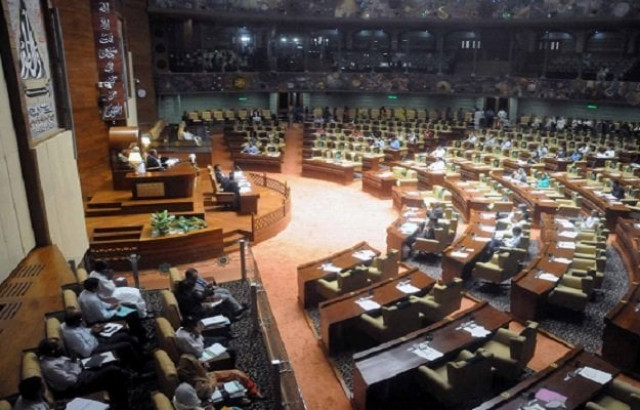Cabinet greenlights Sindh power regulator
SEPRA to 'improve energy equity, eliminate energy poverty'

The Sindh cabinet on Wednesday decided to establish Sindh Electric Power Regulatory Authority (SEPRA) to improve energy equity and eliminate energy poverty in the province.
Chief Minister Syed Murad Ali Shah, who presided over the meeting, termed the cabinet decision a historic step toward power generation, transmission, and distribution. The meeting was attended by provincial ministers, advisors, special assistants, the chief secretary, the P&D Chairman Hassan Naqvi, and other officers concerned.
Sindh Minister for Energy Imtiaz Shaikh briefed the Cabinet that Sindh had the entire value chain of energy resources including coal, solar and wind, with cost-effective access through air, land and sea routes. It could be utilized for the generation of electricity, wheeled through the transmission network of Sindh Grid Company to meet the demand of household, commercial and industrial consumers of the province at affordable prices, he told the cabinet.
Shaikh added that the constraints faced by the provincial power projects, especially the renewable projects wind and solar development, within the national framework in terms of non-inclusion in the Indicative Generation Capacity Expansion Plan 2021 (IGCEP 2021), and lack of further processing by the federal entities.
The IGCEP is a planning document that outlines the projected power demand and the required capacity addition for the electricity sector in Pakistan. The IGCEP 2021 is the latest version of this plan, which was released by the NTDC.
Commenting on it, CM said that it was imperative that a holistic legal, policy, and regulatory framework for generation, transmission, distribution, and regulation was formulated so that energy equity was improved and energy poverty in the province was eliminated.
Section (7)(4) of the NEPRA Act 1997 allows provinces to construct power houses and grid stations and lay transmission lines for use within the province and determine the tariff for the distribution of electricity within the province.
The cabinet after a thorough discussion approved the establishment of the Sindh Electric Power Regulatory Authority.
BRT Red Line
Transport Minister Sharjeel Memon told the meeting that the Karachi Bus Rapid Transit (BRT) Red Line Project was being implemented in collaboration with ADB and co-financer including AIIB, AFD, and GCF, at a cost of $503.2 million. Trans Karachi was an implementing agency for this project, he added.
The land of Aladdin Park, near the Mausmiat Depot, has would serve as the other depot. At the request of the transport Department, the cabinet approved the proposal to provide 16 acre land of Aladdin Park to the transport dept to develop it as a bus staging facility.
It would include a bus parking facility, inspection area, filling station (biogas), workshop, offices, bus-wash and vacuum facility, watch towers, security, and main entry gates, a water recycling plant, and fire pump room. The cabinet also directed the Transport Department to take over the land of the slaughterhouse to establish a biogas plant for the project.
Minimum Wage
On Labour Minister Saeed Ghani's recommendation, the Cabinet approved the fixation of minimum wages for three categories of skilled, semi-skilled and highly skilled workers employed in 42 industries.
The new rate as approved by the Cabinet would be effective at a rate of Rs26,000 for semi-skilled workers, Rs31,961 for skilled workers, and Rs33,491 for highly-skilled workers with retrospective effect from January 2023.
The chief minister said that the new wages for the workers of different categories would be considered from the next financial year.
Published in The Express Tribune, April 13th, 2023.



















COMMENTS
Comments are moderated and generally will be posted if they are on-topic and not abusive.
For more information, please see our Comments FAQ